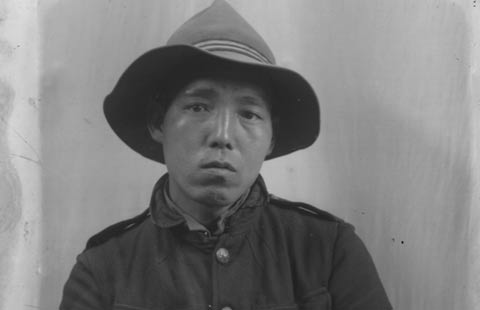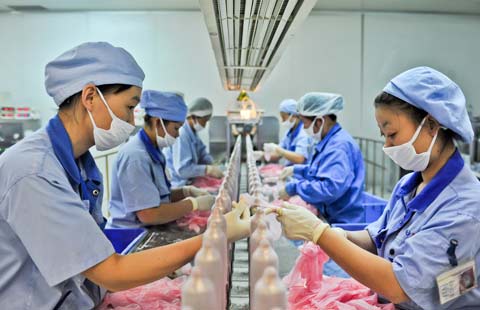Experts call effort thorough, effective
(China Daily) Updated: 2014-07-21 07:22Editor's note: Early this month, China Daily invited three clean-governance experts to share their thoughts on this year's anti-graft campaign. Here is a summary of the dialogue.
Q1: What impressed you most in terms of the anti-corruption work over the past six months?
Q2: Are there any specific areas of corruption that need more attention and effort?
Q3: In the second half of the year, what areas and industries might see more offi cials fired?
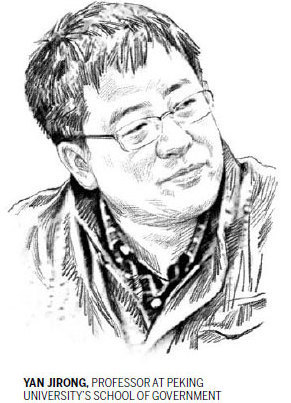
A1 First, a new set of strict rules has been established in accordance with the anti-corruption movement, for example, the eight-point code to cut bureaucracy and the newly released policy to cut spending on government cars.
Second, the fight against corruption has shifted from passive reactions to active strikes. It used to be driven by Internet users who exposed a corrupt official's wrongdoing, like the Shaanxi official who got inspected due to the luxurious watch he wore at public appearances that were photographed and put online by citizens. Now the central inspection teams are taking initiative and hunting for corrupt officials.
A2 The anti-corruption movement is being thoroughly pushed forward across all industries, departments and provinces. One after another, every province and autonomous region and municipality will be covered. The oil industry and the judicial and public security organs were fully inspected.
A3 The inspection teams will go on with their second round of work in various provinces and industries, to complete a nationwide scrutiny.
Some major issues will be solved, especially regarding corruption in the military. The fall of Xu Caihou is not the end. More will follow.
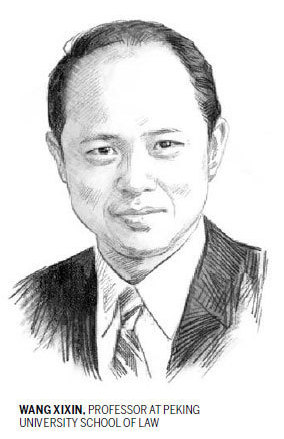 A1 Sending out the inspection teams has proved to be a pretty effective way to fight corruption. The results showed that the harder we strike, the better the social reactions that we get.
A1 Sending out the inspection teams has proved to be a pretty effective way to fight corruption. The results showed that the harder we strike, the better the social reactions that we get.
A2 Buying and selling positions in the government, big construction projects like highways and other instrumental construction, and all trades involving land. All these areas will be closely monitored.
A3 The judiciary needs more supervision. The military is another area that needs to be inspected more.
Corruption in energy-related areas is also common. Due to energy's high degree of monopoly, in addition to its significant value in the market, whoever holds the administrative power to distribute energy and resources easily becomes a target for bribery.
For instance, in the coal market, the government can decide who will get the coal mine at what price. That is a remarkable power, which leaves a huge space for corruption.
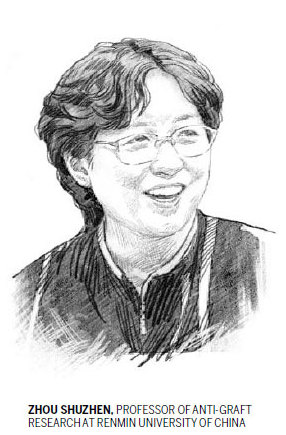
A1 The supervision of senior officials has reached an unprecedented serious level. The number of punished senior officials this year is extremely large. The Communist Party of China is expected to gain more trust from the public through the anti-graft campaign.
A2 It's exciting to see that lots of "tigers" (senior corrupt officials) have been punished, but the flies (low-level corrupt officials) are always more closely connected to the public's life. The officials at grassroots levels should be supervised more effectively.
A3 More senior officials will be probed since the first round of inspection work has just finished, with lots of whistle-blowing tips collected. State-owned enterprises with monopoly status will be closely supervised.
- Fire sweeps through factories in Xinjiang
- 17 dead, 5million affected by Rammasun
- Tianjin police chief probed
- Lunar rover is 'awake' but
faults continue - Six arrested in trafficking tiger cub bought online
- Inside of China's 'Air Force One'
- PLA gets new maps; first revamp in 30 years
- Beijing prepares for more wild weather
- China-made vaccine ready to help world's children
- Senior political advisor of Tianjin under probe



